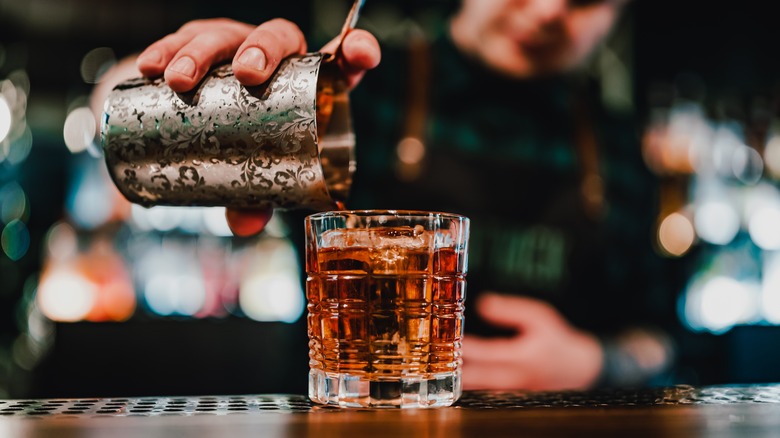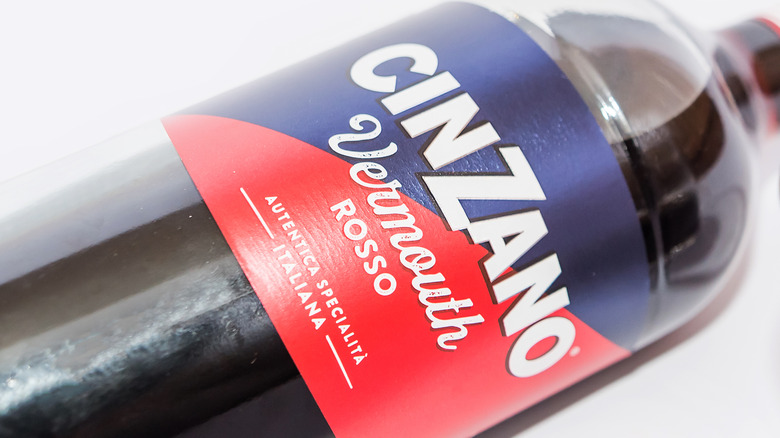The Ancient Origins Of Vermouth
Vermouth sounds more like a potion or a magical herb you'd find listed in a fantasy book than an actual apéritif you'd cozy up to at the bar. The fortified wine can be made sweet or dry, but it is always a treat. According to Baladin, vermouth is considered Italian in origin, though the art of infusing herbs into alcohol is far more ancient than this particular drink. Italy's liquor laws state that vermouth is classified as 75% wine which is then fortified with booze infused with artemisia (aka mugwort; yet another thing that sounds like it belongs in a world of magic) and other herbs.
Most often, vermouth is made using white wine, but the drink also comes in a deep red color which is bled from the drink's other ingredients. There are a handful of vermouth styles: white, red, rosé, dry, and extra dry, and they are used in some of the world's most popular cocktails including the Manhattan, classic Martini, and the popular Negroni (via A Couple Cooks). The vermouth's diversity when it comes to levels of sugar and variety of flavors makes it the perfect mixing apéritif for many of our favorite drinks, and even though it is fit for modern tastes, it seems our ancestors had a love of the stuff as well.
Old as wine itself
There is a divide between modern-day vermouth (which we consider the commercial version of the stuff) and ancient vermouth (the kind our ancestors had been sipping on for, well, thousands of years, but we'll get to that). Flaviar says that the first commercially accepted red vermouth was created by Italian Antonio Benedetto Carpano in the year 1786. He was able to capitalize on the product, and his is the model other Italian vermouths follow today.
Despite modern versions of vermouth having their feet planted firmly in Torino, Italy, vermouth has a far more ancient history dating back well before Atlantic trade was established. According to Spirits Beacon, archaeologists have discovered proof in Henan, China that wine made from grapes and rice found in Neolithic pottery was purposefully infused with plants like poppy, ephedra (an herbal stimulant widely used in medicinal practices), marijuana, hemp flowers, and the key herb in any vermouth: artemisia. In the city of Yin Xu, bronze vessels were discovered containing 3,000-year-old infused wine that had only slightly oxidized! So, while we'd like to think of vermouth as a traditional Italian apéritif, the truth is that true vermouth has been made for millennia well outside of Southern Europe.

